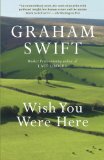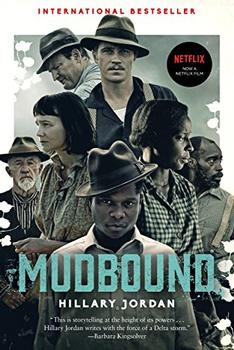Summary | Excerpt | Reading Guide | Reviews | Beyond the book | Read-Alikes | Genres & Themes | Author Bio

The Korean War is over, and a damaged young veteran named Frank tries to make his way back to the South where his sister is dying. Home, the newest work from Nobel Laureate Toni Morrison, recounts this story through the moment-by-moment lives of Frank, his sister, Cee, his grandmother and his girlfriend. The past looms large, and the characters' current lives are mostly unhappy. Terrible things have happened to all of them, but that's not what matters, at least not in the long run. Life will never be anything but a shapeless series of events until Frank, Cee and the others stop simply reacting and start deciding for themselves who they are and what they want.
Home is very short - a novella rather than a novel - and the details are sketchy. It gives the impression of something boiled down to its essence, nothing extraneous. Morrison focuses on the internal experiences of characters not given to introspection. This is not navel-gazing, it is voyeurism at it finest. The characters we get to know are mostly observers of their own lives, just as the reader is observing them. The book ends just as they take their first steps towards making the lives they want, not the lives they were saddled with. As the title emphasizes, it is Frank and Cee's return to their hometown that (in a surprise to them both) sparks the beginning of a new future.
There are several short passages where Frank appears to be speaking to the author of the book, bringing up details and circumstances affecting his choices and his behavior. This unusual technique creates emotional intimacy that might otherwise seem to be missing from the narrative – insight into the why and how, not just the what.
For me, some of the most striking passages in Home are the accounts of the difficulty Frank, as a black man, had to deal with while traveling. Not only was he poor and in a hurry, he had to worry about finding a place that would serve him food and rent him a room (assuming he could afford either) rather than turn him away because of his skin color. He only made it because of the kindness of strangers - pastors, fellow veterans, and strangers on the bus.
Home is a great example of powerful storytelling from an established writer who has not lost her touch.
![]() This review was originally published in The BookBrowse Review in May 2012, and has been updated for the
January 2013 edition.
Click here to go to this issue.
This review was originally published in The BookBrowse Review in May 2012, and has been updated for the
January 2013 edition.
Click here to go to this issue.

If you liked Home, try these:

by Graham Swift
Published 2013
A hauntingly intimate, deeply compassionate story about things that touch and test our human core, Wish You Were Here also looks, inevitably, to a wider, afflicted world. Moving toward a fiercely suspenseful climax, it brilliantly transforms the stuff of headlines into heart-wrenching personal truth.

by Hillary Jordan
Published 2009
It is 1946, and city-bred Laura McAllan is trying to raise her children on her husband's Mississippi Delta farm - a place she finds foreign and frightening. In the midst of the family's struggles, two young men return from the war to work the land. It is the unlikely friendship of these brothers-in-arms that drives this powerful novel to its ...
Being slightly paranoid is like being slightly pregnant – it tends to get worse.
Click Here to find out who said this, as well as discovering other famous literary quotes!
Your guide toexceptional books
BookBrowse seeks out and recommends the best in contemporary fiction and nonfiction—books that not only engage and entertain but also deepen our understanding of ourselves and the world around us.